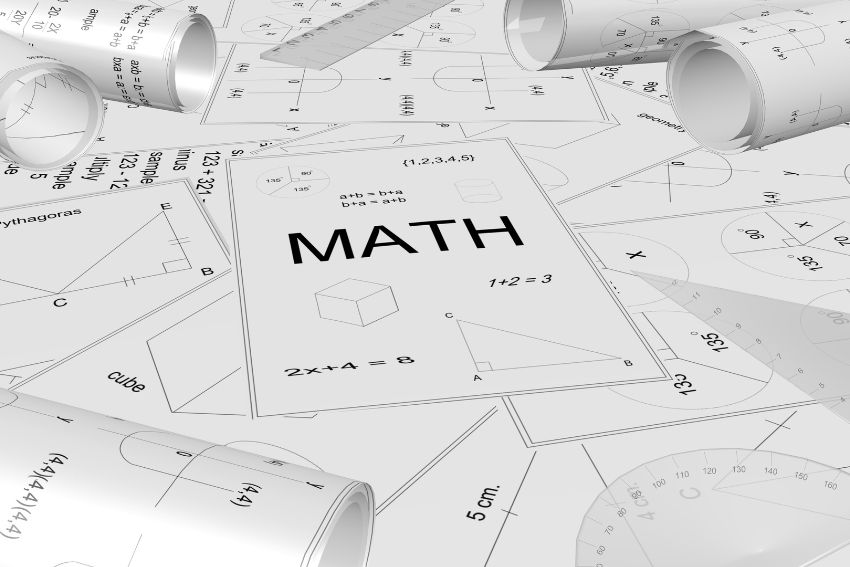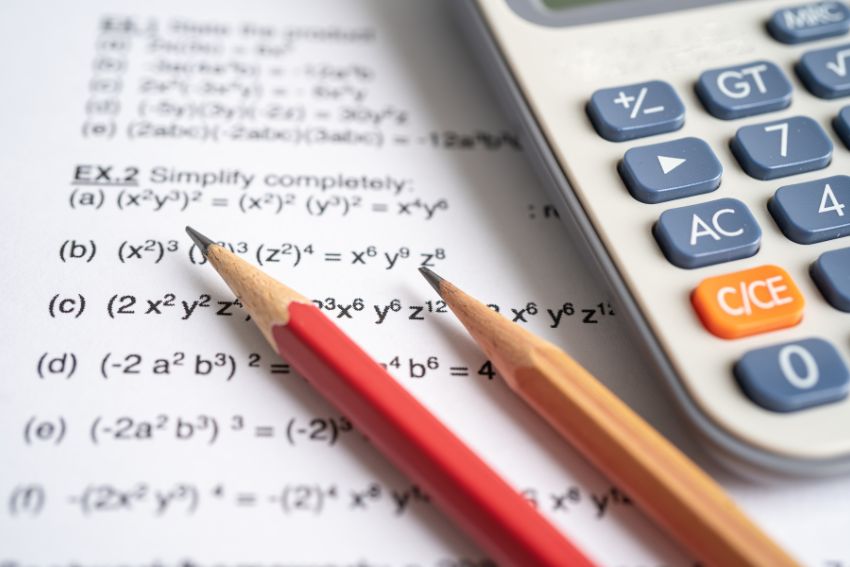How to Revise Maths Effectively: Best Tips for GCSE & A-Level
How to revise maths effectively? Many students find it overwhelming with complex formulas, problem-solving techniques, and time constraints. However, using the right revision strategies can make a huge difference in understanding key concepts and improving performance.
In this guide, we’ll explore proven maths revision tips to help you study smarter, boost confidence, and achieve better results. Whether you’re preparing for GCSEs, A-Levels, or university exams, the right approach can transform maths revision from stressful to successful.

Understanding the Importance of Practice
Mathematics is a subject that thrives on practice. Unlike other subjects where memorising facts might be enough, maths requires active engagement with problems to develop a deep understanding. The best way to revise maths is through consistent problem-solving, as it helps to reinforce concepts, improve accuracy, and build confidence.
If you’re wondering how to revise maths exam, start by solving a variety of questions. Regular practice allows you to identify patterns, understand common mistakes, and strengthen problem-solving speed. The more problems you work through, the more comfortable and prepared you’ll feel when facing exam questions.
Utilising Past Papers for Effective Revision
So, how to revise math? One of the most effective ways to revise maths is by practising past papers. These help students become familiar with exam formats, question styles, and time constraints, making the actual test feel less intimidating.
Working through GCSE and A Level maths past papers, Edexcel maths past papers, and OCR maths past papers allows students to spot recurring question types, assess their strengths and weaknesses, and improve their exam technique. By regular practice of:
A Level Further Maths Past Papers
Students can track their progress and gain valuable insight into how marks are awarded, helping them refine their approach for the real exam.
To maximise the benefits of past paper practice, try timing yourself under exam conditions, reviewing mark schemes, and identifying topics that need further revision. This method not only improves accuracy but also boosts confidence ahead of the exam.

Tailoring Revision for Different Levels
Effective maths revision strategies vary depending on the level of study. Whether you’re preparing for GCSEs or A-Levels, adjusting your approach can help you retain information better and tackle exam questions with confidence.
How to Revise Maths GCSE
If you’re wondering how to revise maths GCSE, start by focusing on core topics such as algebra, geometry, and probability. Use revision guides, practice exam-style questions, and attend review sessions offered by your school or tutor. Flashcards, formula sheets, and topic-specific past papers are also helpful in reinforcing key concepts.
How to Revise Maths A-Level
For those wondering how to revise maths A-Level, a deeper understanding of complex topics like calculus, trigonometry, and statistics is essential. A-Level students benefit from group studies, where discussing problems can clarify difficult concepts. Additionally, using advanced textbooks, online resources, and video tutorials can help break down challenging topics. Seeking guidance from a maths tutor can also provide personalised explanations and structured learning.
By tailoring your revision strategy to your level, you’ll develop strong problem-solving skills and increase your chances of success in maths exams.
Implementing Active Revision Techniques
How to revise maths to excell in exams? Simply reading notes isn’t enough to master maths—active revision techniques help you retain information and apply it effectively. Using proven maths revision techniques, such as spaced repetition, flashcards, and teaching concepts to others, can make a huge difference in your understanding.
One of the best maths tips is to teach a topic to a friend or even explain it out loud to yourself. This forces you to break down concepts into simpler steps, ensuring you fully understand them. Flashcards are another powerful tool, especially for memorising formulas, rules, and key definitions. Reviewing them regularly using spaced repetition strengthens long-term retention.
Additionally, solving problems in different ways and practising mental maths can enhance your flexibility in tackling questions. Active revision makes studying more engaging and helps you develop a stronger grasp of mathematical concepts, leading to better performance in exams.

Managing Time and Setting Goals During Maths Revision
How to revise maths with a structured approach? A well-planned revision timetable is essential for efficient maths revision. Without a clear structure, it’s easy to overlook key topics or spend too much time on areas you already understand.
Creating a study schedule for maths helps allocate sufficient time to each topic, ensuring comprehensive coverage before exams. Start by identifying strong and weak areas—spend more time on challenging topics while maintaining regular practice on familiar ones.
Setting achievable goals is just as important. Instead of vague targets like “revise algebra,” break it down into specific tasks such as “solve 10 algebraic equations.” This makes progress measurable and keeps you motivated.
Sticking to a consistent study routine, with short, focused sessions, prevents last-minute cramming and helps you retain information more effectively. With the right strategy, maths revision becomes more manageable and less stressful.
Maintaining a Positive Mindset for Maths Revision
Having a positive mindset for studying is just as important as using the right revision techniques. Many students feel overwhelmed by maths revision, but managing stress effectively can help improve focus and productivity.
One of the best ways to reduce exam anxiety is through stress management during exams. Techniques such as deep breathing, short breaks, and exercise can keep your mind fresh and improve concentration. It’s also helpful to set realistic goals and track progress—acknowledging small achievements keeps motivation high.
Instead of fearing mistakes, see them as part of the learning process. Reviewing errors helps strengthen your understanding and prevents repeating them in the exam. A positive approach to revision builds confidence, making maths feel less intimidating and improving overall performance.
Conclusion
Revising maths effectively requires the right strategies, consistency, and a positive mindset. By using revision tips for maths, such as practicing regularly, working through past papers, and using active learning techniques, students can improve their understanding and confidence. A well-structured study schedule and a revision timetable ensure that all topics are covered, making it easier to prepare for exams.
The best way to revise maths is to break complex problems into smaller steps, test yourself regularly, and seek support when needed. If you’re unsure how to revise for a maths test, consider working with an online maths tutor. A tutor can provide personalised guidance, targeted revision sessions, and expert techniques to help strengthen weak areas.
With the right approach and a positive mindset, mastering maths is achievable. Keep practicing, stay focused, and believe in your ability to improve. Start your revision today and take one step closer to exam success!
FAQs:
How to revise for a maths test?
The best way to revise for a maths test is to practice regularly, use past papers, and focus on weak areas. Create a revision timetable and break down topics into manageable sections. Active revision techniques like flashcards and teaching concepts to someone else can help reinforce your understanding.
How to get an A in A-Level Maths?*
To achieve an A* in A-Level Maths, master the fundamentals, focus on problem-solving skills, and practice past paper questions under timed conditions. Review mark schemes to understand what examiners look for and seek help from an online maths tutor if needed for challenging topics.
How to keep maths skills sharp?
Regular practice is key to keeping your maths skills sharp. Solve a few problems daily, use maths apps or puzzles, and revisit difficult topics periodically. Teaching someone else or explaining concepts out loud can also help reinforce your understanding.
How to revise A-Level Maths?
Start by reviewing core topics and prioritising difficult areas. Use spaced repetition and practice exam-style questions frequently. Work through past papers, check answers using mark schemes, and focus on problem-solving techniques to improve accuracy and speed.
How to revise Maths GCSE ?
For GCSE Maths revision, practice with past papers from exam boards like AQA, Edexcel, and OCR. Focus on key formulas, use revision guides, and test yourself regularly. Make a study schedule, tackle weaker topics first, and consider an online maths tutor for extra support.








